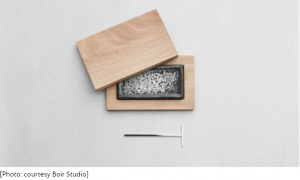Xi discussed cooperation with leaders of Saudi Arabia, Egypt and Iran within the framework of the Belt and Road Initiative and unveiled cooperation projects in fields including industrial capacity, infrastructure and energy.
During Xi's trip, China upgraded its diplomatic relations with Saudi Arabia and Iran respectively to comprehensive strategic partnership, a positioning which means closer cooperation in various areas.
Xi tried to promote enhanced dialogue as a means of resolving differences in the Middle East, and unveiled new aid programs to facilitate development, which he said is key to overcoming difficulties.
Meanwhile, the Chinese leader made it clear that his country is not looking for proxies or trying to fill any "vacuum" in the Middle East, but aspiring to build "a network of mutually beneficial partnerships."
LIFTING BILATERAL TIES WITH IRAN
While in Tehran, Xi agreed with Iranian President Hassan Rouhani to elevate the bilateral ties to a comprehensive strategic partnership.
"China stands ready to work with Iran to lift our mutually-beneficial cooperation in such fields as politics, economy and trade, energy, infrastructure, security, and cultural and people-to-people exchanges to a new stage," the president said.
Rouhani said Iran will respond actively to the Belt and Road Initiative, a vision Xi put forward in 2013 to boost interconnectivity and common development along the ancient land and maritime Silk Roads.
The two sides signed a Memorandum of Understanding on jointly pursuing the initiative.
The Chinese president highlighted a few priorities in the practical cooperation with Iran within the framework of the Belt and Road Initiative such as energy, interconnectivity, industrial capacity and finance.
China hopes the Iran nuclear deal, the Joint Comprehensive Plan of Action (JCPOA), can be implemented smoothly, Xi said.
China and Iran agreed to set up an annual meeting mechanism between their foreign ministers. They also said that China supports Iran's application for full membership of the Shanghai Cooperation Organization (SCO).
Xi also met with Supreme Leader Ayatollah Ali Khamenei and Parliament Speaker Ali Larijani.
Khamenei said that Tehran is willing to push the bilateral practical cooperation to a new high. Iran is an important country along the Belt and Road and stands ready to play a greater role in jointly pursuing the initiative with China, the supreme leader said.
PROMOTING DEVELOPMENT IN MIDDLE EAST
Xi's visit to Egypt, the second leg of his regional tour, is the first by a Chinese head of state in 12 years. The two sides are celebrating the 60th anniversary of the establishment of their diplomatic ties.
During Xi's visit, the two sides signed a five-year outline document to further advance their relationship.
According to the 18-page document, they will boost their cooperation in such fields as politics, trade and economy as well as military and security.
"China will continue to view and develop its relations with Egypt from a strategic and long-term perspective," Xi said in a signed article published on local newspaper prior to his arrival.
He proposed that the two countries work together to build the Arab nation into a pivot of the Belt and Road. To that end, Xi suggested, China and Egypt should align their development strategies and visions and focus on cooperation on infrastructure construction and industrial capacity.
Xi said China is willing to participate in Egypt's key projects including the development of the Suez Canal Corridor and the construction of a new administrative capital.
Xi also invited his Egyptian counterpart Abdel-Fattah al-Sisi to attend the Group of 20 (G20) summit in the Chinese city of Hangzhou in September.
While in Egypt, Xi delivered an important speech at the headquarters of the Arab League outlining Chinese approach to issues in the Middle East.
The Chinese leader said that the key to resolving differences in the Middle East is to enhance dialogue and that the key to overcoming difficulties in the region is to promote development.
He said that the Chinese government has decided to pledge RMB50 million ($7.53 million) to help improve the livelihood of the Palestinians and RMB230 million ($35 million) for Syria, Jordan, Lebanon, Libya and Yemen as humanitarian assistance.
Xi announced loan programs in support of development in the Middle East, including $15 billion of exclusive loans, $10 billion of commercial lending and $10 billion of concessional loans, as well as joint investment funds worth a total of $20 billion.







